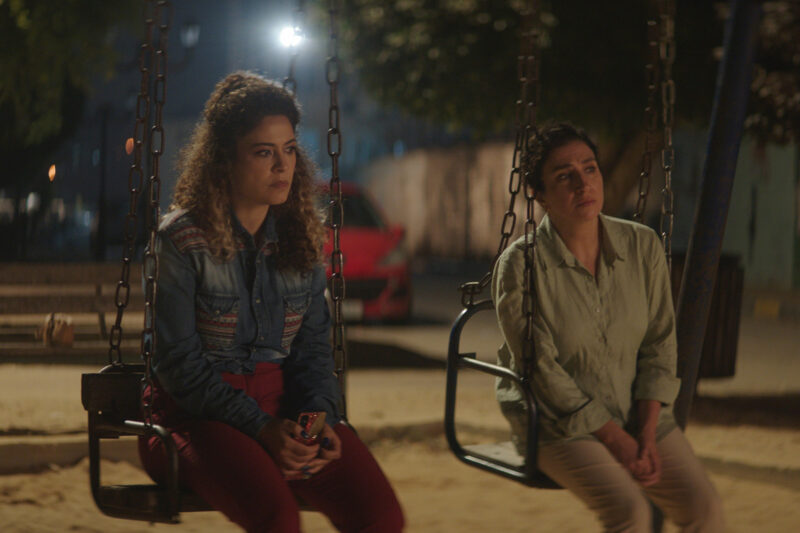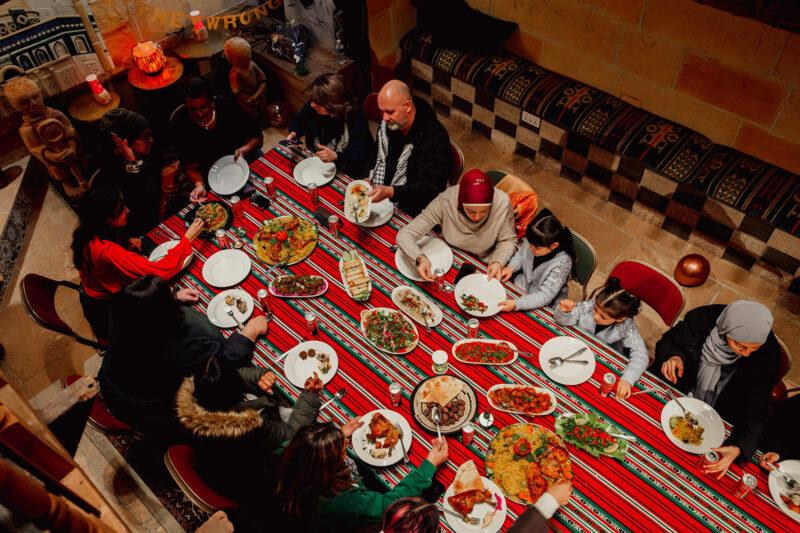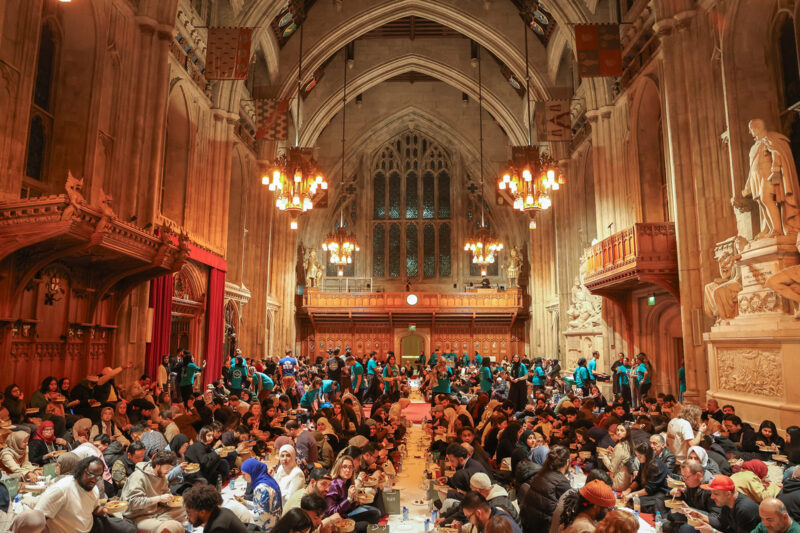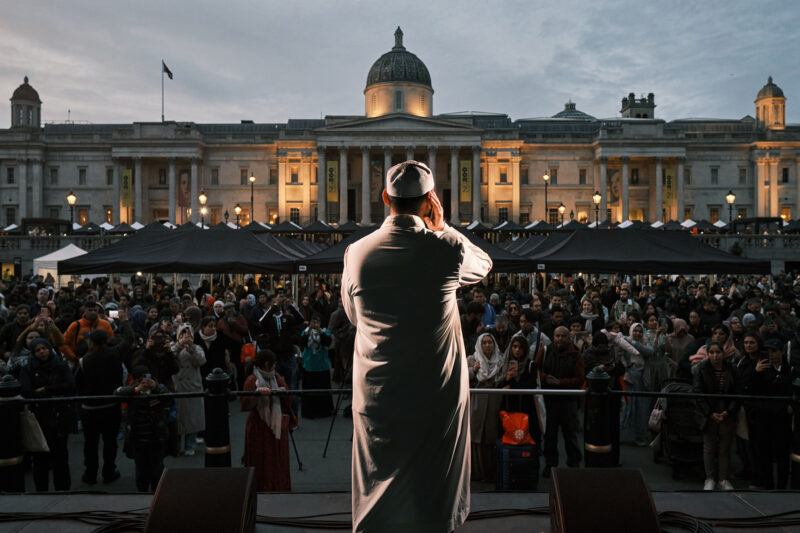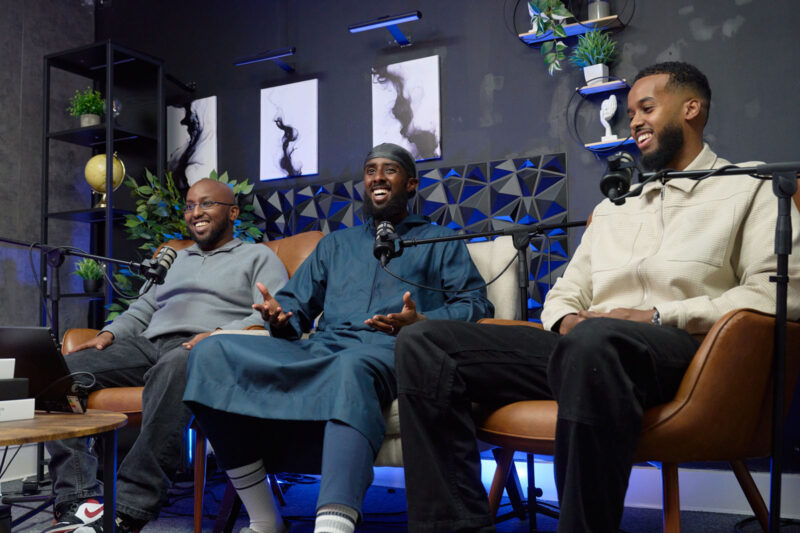
As a Muslim mother, how should I navigate Christmas with my young child?
I don’t celebrate Christmas, but I dabble in it, as I believe we can enjoy the season without compromising our Islamic beliefs
My son has begun to ask if Santa will come down our chimney this year bearing gifts. I give him the same answer that my parents told me when I was his age: “No habibi, we are Muslim and we don’t celebrate Christmas. We have Eid al-Fitr and Eid al-Adha.”
My husband and I, both British Muslims, are navigating Christmas with our young child for the first time. Ammar, who is now three, has started singing along to festive songs like Jingle Bells. Thanks to his favourite Julia Donaldson book Stick Man, he knows Santa is a jolly red-suit-wearing old man with a white beard who rides on a sleigh led by flying reindeers.
I can’t pretend that Christmas does not exist. In a year’s time Ammar will start nursery full time and there will be no escaping school Christmas parties, nativity plays and carols.
The Muslim community in Britain is divided into different camps when it comes to the topic of Christmas. There are some, like one of my husband’s friends, who take on the full non-religious Christmas experience. They dress up as Santa, put up a Christmas tree and buy their children presents. There’s the argument that you can take part in Christmas as a Muslim because it is a celebration of a prophet’s birth.
But there are those who vehemently oppose it and will not let their children go near a mince pie. For many traditionalist Muslims, doing anything even remotely Christmassy is forbidden. There’s the understanding that some Christmas traditions have pagan origins, such as the festival of Norse Yule, and in Islam, partaking in anything with pagan connotations is forbidden. And, of course, the story of Jesus’s birth in the Qur’an differs from that in Christian tradition: we do not believe in Jesus as the son of God.
I’ve been advised that I simply need to tell my son that Christmas is not allowed, and that’s that. But I don’t agree with this black-and-white approach. I think back to myself as a child and how I struggled when my parents gave answers to questions like these with no explanation or discussion. It just made me even more curious.
For me, it is of great importance that my child is educated about world religions and that I teach Ammar to respect them. I expect him to have an understanding of other faiths, just as I hope non-Muslims have some knowledge of Islam.
So, I’ve come to the conclusion that I fall into the middle camp. I don’t celebrate Christmas, but I dabble in it.
Now, as more Britons identify as non-religious, Christmas feels more of a traditional British holiday than a religious one. Perhaps this is why some British Muslims have become open to it. As Tawseef Khan outlines in his book Muslim, Actually, 25 December is the one day in the year when most people are off work, providing an opportunity for families to get together. Even my own in-laws, who say celebrating Christmas is haram, roast a chicken and hold a family dinner on the day.
I love everything about Christmas time — the cosiness of the winter season, deliciously crumbly mince pies, seeing the streets lit up, drinking hot chocolate at markets and watching movies like Home Alone and It’s a Wonderful Life. I have done Secret Santa at work, I exchange Christmas cards with colleagues and neighbours and have participated in Christmas Jumper Day in the past to raise money for charity.
But this is not about actually believing in Christmas; rather, more to do with enjoying a season that signals the winding down of the year, spending time with family and loved ones, and romanticising what is otherwise a gloomy and cold month.
What does concern me, though, is that Christmas is increasingly being used as a measure of how “British” Muslims are. In his book, Khan examines how the question of whether to celebrate Christmas plays into our wider identity as modern British Muslims. He writes that Christmas is used by European states as a measure of Muslims’ integration, citing how the Danish People’s party demands that Muslims in Denmark celebrate Christmas to prove their “Danishness”.
For Muslims who do celebrate Christmas — or dabble in it as I have done — it shouldn’t be because we are trying to fit into other people’s ideas of what it means to belong in a certain place. I won’t be putting pressure on myself as a Muslim parent, or on Ammar as a young British Muslim, to prove himself to society by celebrating Christmas, nor will I oppose all things Christmas in an effort to protect him, or demand he prove his Muslimness.
We can enjoy the Christmas season without compromising our Islamic beliefs and without it being a yardstick by which our integration into British society is measured. If I give my child a solid foundation in Islamic teachings, his religious beliefs will not come under question when he finds himself surrounded by Christmas festivities. Our faith isn’t so fragile.
 Newsletter
Newsletter


